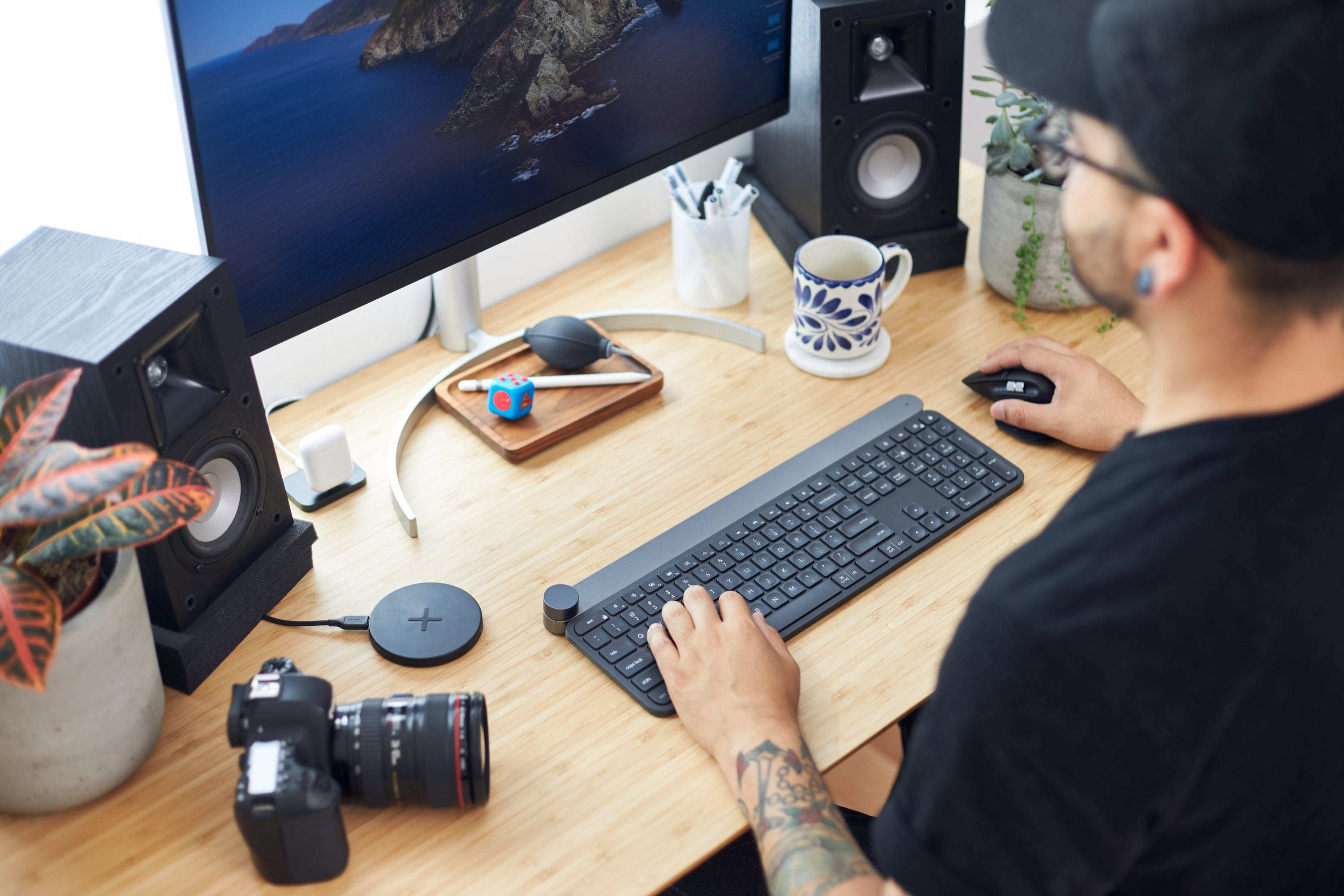
How Screen Use Contributes to Skin Ageing - Understanding Free Radical Damage and Effective Remedies
In our digitally connected world, screens are an integral part of our daily routines, from professional tasks at work to leisurely scrolling at home. But prolonged screen exposure - spending more than 4 hours daily on laptops, tablets, or phones - can introduce harmful free radicals to our skin, particularly affecting our face, neck, and forearms. Let's explore the science behind this phenomenon and identify effective, everyday strategies to combat this unseen damage.
The Science: Screens, Blue Light, and Free Radicals
Electronic screens emit high-energy visible (HEV) blue light, a form of electromagnetic radiation. Prolonged exposure to HEV blue light stimulates the production of reactive oxygen species (ROS), commonly known as free radicals, at the skin’s surface. These unstable molecules create oxidative stress, damaging healthy skin cells, impairing collagen and elastin fibres, and accelerating the skin ageing process.
Why Free Radicals Accumulate on the Skin
Prolonged exposure to screens generates oxidative stress because:
-
High-energy Light Exposure: Screens emit blue light, which penetrates deeper into the skin layers than UV rays, directly stimulating free radical formation.
-
Constant Exposure: The sustained and close-range use of screens means skin experiences continuous oxidative stress throughout the day.
Visible Signs of Free Radical Damage from Screen Use
-
Premature Ageing: Fine lines, wrinkles, and loss of elasticity, especially around the face and neck.
-
Hyperpigmentation: Uneven skin tone and dark spots caused by persistent oxidative stress.
-
Dryness and Irritation: Skin barrier impairment leading to dryness, sensitivity, and irritation.
Effective Ways to Counteract Free Radical Damage
To neutralise free radicals and reverse the oxidative stress caused by prolonged screen time, consider incorporating these practical activities into your daily routine:
1. Regular Physical Exercise (e.g., Jogging, Gym Workouts)
Physical activity boosts your body’s natural antioxidant production, enhancing cellular resilience against oxidative stress. Exercising outdoors, especially in forested areas or parks, provides added benefits through exposure to cleaner air and reduced environmental pollutants, enhancing overall skin health.
2. Antioxidant-rich Diet and Beverages (Tea, Coffee)
Antioxidant-rich foods and beverages like green tea and coffee provide internal support against oxidative damage. Coffee, in particular, is abundant in chlorogenic acid and polyphenols, powerful antioxidants known to neutralise free radicals effectively.
3. Hydration with Water
Adequate water intake maintains skin hydration and helps flush toxins, reducing the accumulation of oxidative byproducts and preserving skin health.
4. Regular Breaks and Reduced Screen Time
Taking frequent short breaks away from screens allows your skin to recover from constant blue-light exposure. Incorporate brief breaks throughout the day to significantly reduce cumulative oxidative damage.
5. Protective Antioxidant Skincare
Regular use of topical antioxidants, such as coffee scrubs, vitamin C, or vitamin E creams, directly neutralises free radicals at the skin's surface. These skincare solutions effectively interrupt oxidative stress before it can cause lasting damage.
6. Relaxation Activities (Massage, Showers)
Relaxation activities such as massages and warm showers help reduce stress hormones, which indirectly reduces oxidative stress. Massage, in particular, enhances blood circulation and encourages toxin elimination, improving skin vitality and appearance.
Activities to Approach with Caution
-
Sun Exposure: Moderate sun exposure can provide vitamin D, but excessive sun exposure without protection can worsen free radical formation.
-
Subway or Bus Travel: While practical for commuting, public transport can expose skin to pollutants, potentially increasing oxidative stress. Using protective skincare products and cleansing thoroughly after commuting can minimise damage.
Forming Effective Habits for Healthier Skin
To protect your skin from the harmful effects of prolonged screen use:
-
Take regular breaks from screens during the workday.
-
Exercise regularly, preferably outdoors in clean environments.
-
Consume a balanced, antioxidant-rich diet and stay hydrated.
-
Integrate antioxidant-rich skincare into your daily routine.
Conclusion - Safeguarding Your Skin in a Digital World
Prolonged exposure to screens and the resulting blue light radiation significantly increases free radical formation, accelerating skin ageing. However, with mindful adjustments to your daily habits - including regular physical activity, proper skincare, and antioxidant-rich diets - you can effectively reduce oxidative damage and maintain youthful, healthy skin despite our increasingly screen-centric lifestyles.